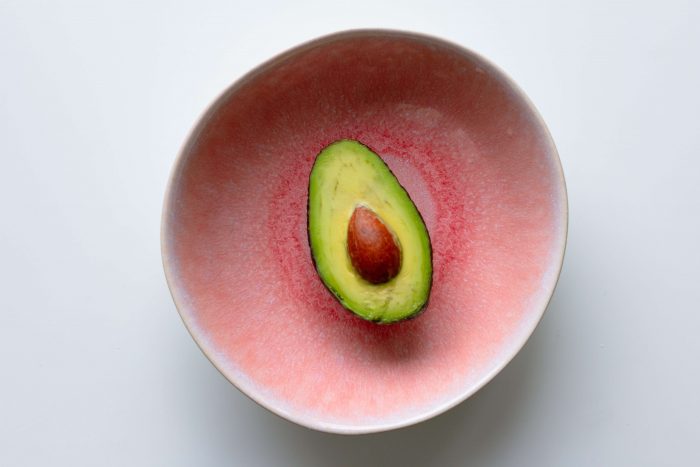When thinking about losing weight, one of the first steps you probably consider is that you must completely avoid foods containing fat. It sounds like a no-brainer, right? Eating fat must lead to a higher body fat percentage. But what you may not know is that not all fats are the same. Fats are often demonised for their name but let me tell you this: There are healthy “good” fats which should be a part of your diet (therefore dietary fats) and bad fats, such as trans and saturated fats that you should avoid/keep at a minimum.
Healthy fats vs. bad fats
Healthy fats play a vital role in our diet. They have a huge impact on our health, well-being, and mind. Some of the functions of healthy fats in our diet include:
- Source of energy for our bodies
- Helping absorb important minerals and vitamins
- Supporting cell growth and restoration
- Producing several important hormones
- Protecting internal organs and keeping our bodies warm
- Reducing the risk of heart diseases and stroke
- Lowing cholesterol levels
On the other hand, “bad” trans and saturated fats should be consumed in a limited amount or avoided altogether. These types of fat mostly occur in animal products such as meat, eggs, and dairy products, and some highly processed foods (biscuits, pastry etc.) Saturated and trans fats are responsible for an increased risk of some chronic diseases, such as cardiovascular diseases, high blood cholesterol (LDL), and type 2 diabetes.
Healthy fats: monounsaturated and polyunsaturated
When we talk about healthy fats, we divide them into two categories: monounsaturated and polyunsaturated. These are the healthy fats you want to consume as a part of a healthy diet. They are both beneficial for our health. They have a different molecular structure than trans and saturated fats (fewer hydrogen atoms in their carbon chain) and you always find them in a liquid form at room temperature.
Monounsaturated fats
Most types of liquid oil we use for everyday cooking are most likely monounsaturated fats. This kind of healthy fat has an immensely positive impact on heart health and blood cholesterol levels. Regular consumption of monounsaturated fats protects the heart from diseases, such as heart attack and helps decrease the risk of type 2 diabetes.
Monounsaturated fats have double bonds in their molecular structure which prevents them from being solid, unlike trans and saturated fats that are solid at room temperature (e.g. coconut oil).
Eating monounsaturated fats may be helpful for losing weight, even though you probably think the opposite. But the truth is that monounsaturated fats can work wonders for weight loss! By replacing a calorie intake from carbs with calories from monounsaturated fats you will effectively lose weight as long as your calorie intake is not higher than the number of calories you burn.
Polyunsaturated fats
Polyunsaturated fats are a type of fats we call essential fats. That means they must be included in a diet because a human body cannot make them on its own. They are crucial for a body to function properly. The good news is that polyunsaturated fats are easily obtained from foods and plant-based foods are the best sources!
Polyunsaturated fats contain both omega-3 fatty acids and omega-6 fatty acids. These fatty acids are required for cell growth and brain function. They protect against stroke, inflammatory and neurodegenerative diseases (Alzheimer’s). Omega-3 and omega-6 fatty acids are also necessary for reducing cholesterol and lowering the risk of heart disease, reducing the risk of type 2 diabetes, lowering blood pressure, and lowering the level of bad cholesterol (LDL cholesterol).
Having a too high level of LDL cholesterol in the blood is dangerous. LDL cholesterol can clog and block arteries. If this situation continues for too long it can lead to cardiovascular diseases. Consuming the right amount of polyunsaturated fats helps reduce this risk greatly and helps keep your heart in a healthy condition.
Plant-based sources of healthy fats
Monounsaturated fats (including non-essential omega-7 and omega-9 fatty acids) can be found in:
- Avocados
- Olive oil
- Canola (rapeseed) oil
- Peanut oil
- Nuts, especially cashews and almonds
Polyunsaturated fats (including omega-3 and omega-6 fatty acids) are included in:
- Flaxseeds and flaxseed oil
- Sunflower seeds and sunflower oil
- Soybeans and soybean oil
- Chia seeds
- Safflower oil
- Some nuts, especially walnuts, brazil nuts
For more sources, you can download this Vegan Healthy Fat Sources cheatsheet.
How much healthy fats should you consume?
As already said, healthy fats are a part of a healthy diet and they work as fuel for our bodies. Fats should make up about 20-35% of daily calorie intake. This number includes both healthy (mono- and polyunsaturated) and unhealthy (trans and saturated) fats. To make a healthy diet choice, most of the fats in your diet should come from healthy fat sources.
Eating healthy fats certainly brings positive effects to our health. However, eating too much fat can lead to weight gain. And that is true even when fats are classified as healthy. That is because one gram of fat contains nine calories, more than twice as many calories as are found in one gram of protein or carbs. Healthy fats are a necessary part of a healthy balanced diet and contribute to weight loss, but only in a regulated amount.
Here is the best thing you can do for your health right now: You may want to eliminate trans fats from your diet or at least keep them to an absolute minimum. Replacing saturated fats with healthy fats will be hugely beneficial to your health. If you cannot replace all calorie intake from saturated fats, try to keep the consumption of saturated fats under 10% of your calorie intake per day.
Ways to replace foods high in saturated fats with healthy fat-rich foods
- Always check labels. If a product contains less than 0.5g of trans fats, it can be labelled as 0g. Therefore, look for the word “partially hydrogenated” in an ingredient list. Do not buy such products.
- Limit eating out, particularly fast foods, commercially baked goods, and other highly processed foods as these contain a high amount of bad fats.
- Snack on healthy foods. Nuts, olives, and seeds are great for snacking between meals and at night.
- Cook with nut and seed oil whenever possible. Using oil for cooking and frying is a healthier option than using solid fats, such as butter. If you have an option of extra virgin olive oil, even better.
- Incorporate more avocados into your diet. Put them in your salads, toasts, sandwiches and make guacamole. Avocados are delicious and will keep you full.
- Reach for low-fat versions of your favourite products, such as plant-based milk, coconut yoghurt and others and limit processed plant-based products.
Conclusion
Fats make up about 20-35% of our diet. Therefore, it is important to make a good choice of fats we consume. Most of the fats in our diet should come from healthy fat food sources, such as avocados, nuts, seeds, and oil. The “bad” fats – saturated and trans fats – should be avoided or limited to a minimum because they carry a higher risk of cardiovascular and other diseases. Losing weight is manageable as long as the calorie intake from fats is lower than the number of calories burnt.
Always opt for healthy fats. They are delicious, abundant on a vegan diet, and bring many health benefits!







Read 0 comments and reply